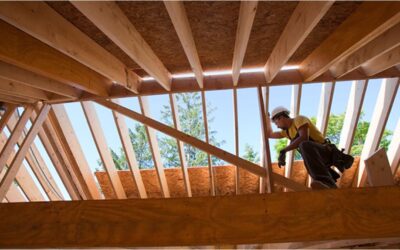
“Closing costs are typically between 2% and 5% of your purchase price.”
When buying a home, it’s important to have a budget and make sure you plan ahead for certain homebuying expenses. Saving for a down payment is the main cost that comes to mind for many, but budgeting for the closing costs required to get a mortgage is just as important.
What Are Closing Costs?
According to Trulia:
“When you close on a home, a number of fees are due. They typically range from 2% to 5% of the total cost of the home, and can include title insurance, origination fees, underwriting fees, document preparation fees, and more.”
For example, for someone buying a $300,000 home, they could potentially have between $6,000 and $15,000 in closing fees. If you’re in the market for a home above this price range, your closing costs could be greater. As mentioned above, closing costs are typically between 2% and 5% of your purchase price.
Trulia gives more great advice, explaining:
“There will be lots of paperwork in front of you on closing day, and not enough time to read them all. Work closely with your real estate agent, lender, and attorney, if you have one, to get all the documents you need ahead of time.
The most important thing to read is the closing disclosure, which shows your loan terms, final closing costs, and any outstanding fees. You’ll get this form about three days before closing since, once you (the borrower) sign it, there’s a three-day waiting period before you can sign the mortgage loan docs. If you have any questions about the numbers or what any of the mortgage terms mean, this is the time to ask—your real estate agent is a great resource for getting you all the answers you need.”
Bottom Line
As home prices are rising and more buyers are finding themselves competing in bidding wars, it’s more important than ever to make sure your plan includes budgeting for closing costs. Let’s connect to be sure you have everything you need to land your dream home.
To view original article, visit Keeping Current Matters.
Reasons Your Home May Not Be Selling
If you’re thinking of selling, lean on your real estate agent for expert advice based on your unique situation and feedback you get from buyers throughout the process.
Today’s Housing Inventory Is a Sweet Spot for Sellers
Buyers have fewer choices now than they did in more normal years, and that’s continuing to impact statistics in the housing market.
Evaluating Your Wants and Needs as a Homebuyer Matters More Today
So, if you’re looking to buy a home, take some time to consider what’s truly essential for you in your next house.
Where Will You Go If You Sell? Newly Built Homes Might Be the Answer.
New home construction is up and is becoming an increasingly significant part of the housing inventory.
Why Homeownership Wins in the Long Run
It’s important to think about the long-term benefits of homeownership when deciding whether or not to buy a home.
The True Cost of Selling Your House on Your Own
When it comes to selling your most valuable asset, consider the invaluable support that a real estate agent can provide.





